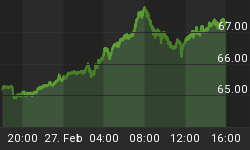The valuation and stability of all financial markets have been enhanced by the universal belief that US government bonds represent a risk-free interest rate. However, the notion that a bond can be risk-free is misguided. The recently heightened public awareness of sovereign risk and the potential for sovereign defaults in the future (Figure 1) ultimately will force investors to recognize that the use of a risk-free interest rate to value financial assets is flawed.
Figure 1. Sovereign Defaults Should Boom
Source: Elliott Wave Financial Forecast
Nearly all asset pricing models use, directly or indirectly, a risk-free rate to derive financial asset valuations. Although there is a growing minority who claim that US government bonds are not risk-free, as indicated by the existence of US credit default swaps (that are actually rising), market valuations and sentiment to do not support this view. Investors continue to view the investment world as it has operated during the past 30 years rather than recognize how significantly the landscape has and continues to change because of sovereign risk. When subprime problems first appeared, investors and central banks believed that the problems would be contained and could be easily managed. Today, the same complacency sets the backdrop for sovereign debt issues. When markets embrace a risk premium for US government bonds, the effect on the pricing of all other risk assets (stocks, bonds, real estate) will be even more severe than what was seen in the fall of 2008.















